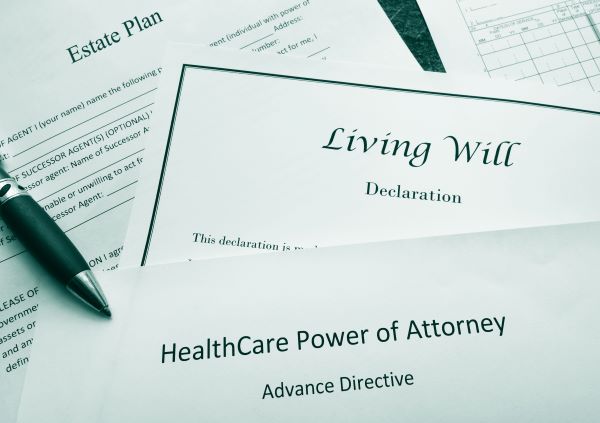Even if your children get along well, the distribution of your assets can require conflict resolution skills. Without previously experiencing any significant conflicts, even close siblings can struggle to maintain happy family relationships when settling your estate.

Medical Estate Planning Documents: What You Need to Know
Wills, trusts, and transferring assets are typically thought of when people think of estate planning. However, there is another part of estate planning that doesn’t get as much attention. It concerns advance health care planning.
- Have you thought about what type of medical care and treatments you want, or don’t want, if you become incapacitated or terminally ill?
- Who would you trust to make health care decisions for you if you were not able to make decisions or communicate with the medical professionals who were caring for you?
If you don’t have the answers to these questions in writing ahead of time, decisions may need to be made in court by a judge. The care you get may be different from your wishes or beliefs. And the person selected to make decisions for you may not know what you want or share your values.
To ensure your health care wishes are honored, you need to spell them out in appropriate legal documents commonly referred to as advance directives. You don’t need to wait for later years. Every adult should have advance directives since a serious medical emergency could happen at any time.
Living Will
A living will is a legal document to specify which medical treatments you want to keep you alive if the need arises. You can also use a living will to express your pain management and organ donation preferences.
When considering what to put in your living will, think about your lifestyle, how you want to live, and what aligns with your beliefs and values. Here are some questions to ask when thinking about your living will:
- Would you want medical treatments that would extend your life in any situation or just in particular situations?
- Do you want a life-saving treatment only if a cure is available or you have a good chance of a full recovery?
- Under what circumstances would you consider your life not worth living?
- If you can’t eat solid or pureed foods, do you want to be tube fed? If so, for how long?
- Do you want mechanical ventilation if you can’t breathe on your own? If so, for how long?
- Do you want to be revived by CPR or similar methods if your heart stops?
- What type of palliative care do you want if you are terminally ill? Do you wish to die at home or in a medical facility?
- Would you like to donate your organs and tissues for transplant purposes?
- Would you like to donate your body to science?
There are other options you can consider. An attorney experienced in estate planning and elder law can help you determine the best options for your situation.
Power of Attorney
In a health care power of attorney document, you name a person or persons who can make health care decisions on your behalf if you are unable to make decisions on your own. The name of this document varies from state to state. And how your chosen person (agent or proxy) is referred to also varies from place to place.
Even if you cover several scenarios in your living will, some situations you didn’t anticipate may arise. Having someone you trust to make decisions for you is especially important. When choosing a person to be your health care agent, choose someone who understands you well enough to know what you want and that you trust to make potentially difficult decisions if necessary. It is a good idea to choose at least one backup agent in case your primary agent is unable or unwilling to act.
HIPAA Form
A Health Insurance Portability and Accountability Act form allows you to name individuals who may receive information regarding your medical condition and history from healthcare professionals who are caring for you. Your HIPAA form should include all the agents you name in your health care directives.
Creating Your Advance Directives
Some attorneys combine a living will with a power of attorney into a single advance health care directive document. This is convenient since all the information is in one place. As mentioned before, healthcare documents are usually part of an estate plan, but they may also be stand-alone documents.
Reviewing and Updating Your Advance Directives
Over time your views and wishes regarding your end-of-life treatment may change. Also, you may change your mind about the person you want to make decisions for you. If you decide to update your advance health care directive, talk with your attorney. After updating your directive, make sure it replaces all existing originals and copies of the previous directive to avoid any confusion later.
This article summarizes aspects of estate planning law and elder law. It is not legal advice and does not create an attorney-client relationship. For legal advice, you should contact an attorney.
We hope you found this article helpful. If you’d like to discuss your particular situation, please don’t hesitate to reach out. Please contact our Cincinnati office by calling us at 513-771-2444 and schedule a consultation. We look forward to the opportunity to work with you.



